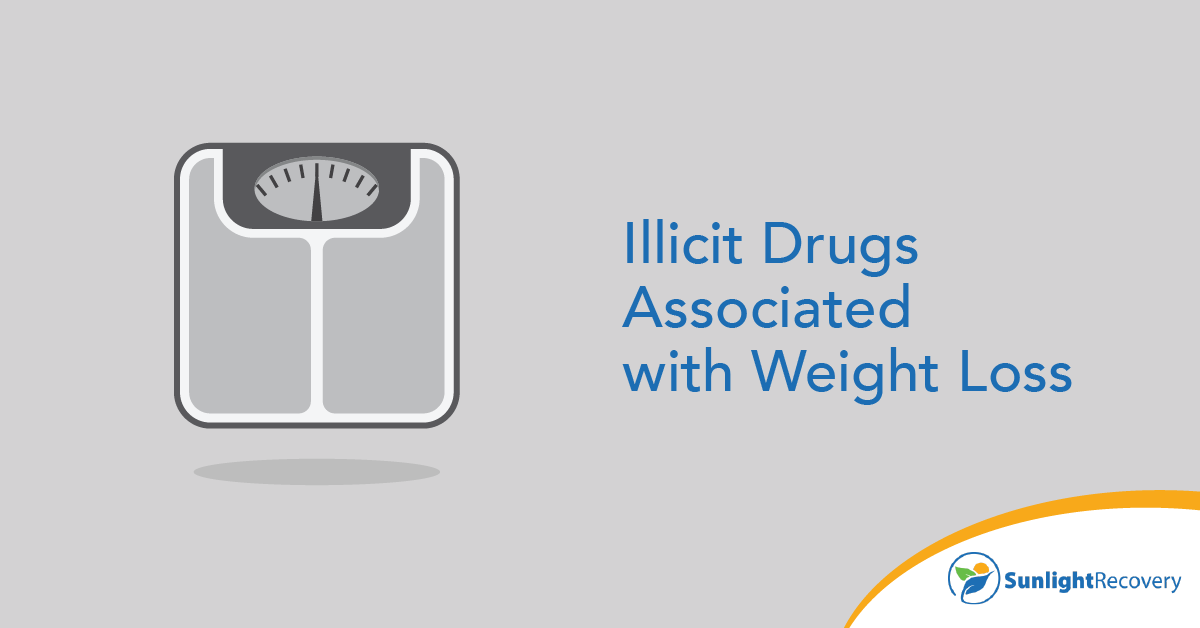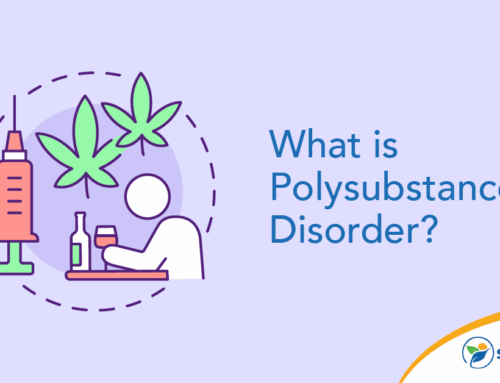Weight loss can be a dangerous side effect of illicit drug use. While some people may view rapid weight loss as a positive outcome, losing weight through drug use can cause health issues. Does cocaine make you lose weight? While this is a common question, it’s important to note other illicit drugs can also cause unhealthy weight loss.
Understanding which drugs cause weight loss and why can help you recognize potential substance abuse issues early. This article explores the connection between five illicit substances and weight loss.
Stimulants and Appetite Suppression
Stimulant drugs work by speeding up your central nervous system, which affects your body’s normal functions. These substances trigger the release of certain neurotransmitters like dopamine and norepinephrine. When these chemicals flood your brain, they suppress hunger signals and increase your metabolic rate.
The energy boost from stimulants can make you feel less tired and more active. However, this artificial energy comes at a cost. Your body burns through its resources faster, and your appetite diminishes. You might find yourself going long periods without eating because the drugs override your body’s natural hunger signals.
Does Cocaine Make You Lose Weight?
Cocaine is one of the most common of illicit drugs that cause significant weight loss. When people use cocaine, it acts as a powerful appetite suppressant. The drug increases dopamine levels in your brain, creating that rush of energy while simultaneously shutting down hunger cues.
How does cocaine make you lose weight? Users often report not feeling hungry for hours or even days after using cocaine. This combination of increased activity and decreased appetite leads to rapid weight loss. Some people lose weight within weeks of regular cocaine use, but this weight loss comes with serious health dangers including heart problems, tooth decay and brain damage.
Does Meth Make You Lose Weight?
methamphetamine, commonly known as meth, is another illicit drug that dramatically affects body weight. Meth users can experience extreme weight loss in a short period. The drug speeds up your metabolism while completely suppressing your appetite. Users often stay awake for days at a time, burning calories without consuming enough nutrients.
The physical effects of meth on the body go beyond simple weight loss. Users develop what’s known as “meth mouth” from tooth decay and can experience severe skin problems and suffer from malnutrition. The increase in methamphetamine overdose deaths between 1999 and 2022 highlights the deadly nature of this drug.
Other Drugs That Make You Lose Weight
Beyond cocaine and methamphetamine, other illicit substances can trigger significant weight loss. These drugs operate through similar mechanisms, disrupting your body’s natural appetite regulation and metabolism. While each substance has a unique chemical profile, they share the common effect of suppressing hunger signals and increasing metabolic activity.
The weight loss from these drugs isn’t the controlled, healthy reduction people might seek. Instead, it’s a dangerous side effect that often masks more serious health problems. Understanding how these substances affect your body can help you recognize potential drug abuse and the risks involved.
Whether taken recreationally or obtained through illegal means, these drugs create artificial changes in your body that can lead to severe malnutrition and systemic damage:
- MDMA/Ecstasy leads to appetite suppression during use and can cause lasting changes in eating patterns. Users often forget to eat while under the influence and may experience nausea that prevents proper nutrition.
- Amphetamines work similarly to cocaine and meth, speeding up your metabolism while reducing hunger signals. These drugs keep users awake for extended periods, leading to significant calorie burn without adequate food intake.
- Stimulants, when misused, can cause weight loss. While these medications have legitimate medical uses, taking them without a prescription or in higher doses than prescribed leads to the same appetite-suppressing effects as illegal stimulants.
Health Risks and Hidden Dangers
The weight loss from these drugs masks serious underlying health problems. Malnutrition becomes a major concern as your body lacks essential nutrients. Your immune system weakens, making you more susceptible to infections and illness.
Cardiovascular problems can develop quickly with stimulant use. Your heart has to work overtime, while your body lacks proper nutrition to support this increased demand when these types of drugs are a factor. Since 2008, the rate of emergency department visits for substance use disorders among adults has increased significantly.
Psychological effects compound the physical damage. Depression, anxiety and paranoia often develop alongside weight loss. These mental health issues can persist long after someone stops using drugs.
Recognizing Signs of Drug Use
Recognizing drug-related weight loss requires looking beyond the scale. Drug abuse affects every aspect of someone’s life regardless of age, creating a pattern of behaviors that signal deeper problems. These warning signs often emerge gradually, becoming more pronounced as substance use continues.
The combination of physical, behavioral and emotional changes creates a profile that sets drug-related weight loss apart from intentional dieting or health issues. Family members, friends and coworkers might notice these shifts before the person using drugs acknowledges them. Understanding what to look for can help you intervene early and connect someone with the help they need.
Learning these signs helps you recognize when someone needs support. Identifying drug-related weight loss involves watching for multiple warning signs:
- Rapid, unexplained weight loss
- Loss of appetite or skipping meals frequently
- Increased energy followed by extreme fatigue
- Mood swings and irritability
- Physical signs like dilated pupils or twitching
- Poor personal hygiene
- Financial problems or stealing
These symptoms often appear together. A person might seem energetic and lose weight while also becoming more secretive or experiencing money troubles.
Seeking Help for Substance Abuse
Help is available for those struggling with drug-related weight loss and addiction. The first step involves acknowledging the problem and reaching out for professional support. Treatment centers offer programs that address the physical and psychological aspects of addiction.
Recovery includes medical detoxification, counseling and ongoing support. Proper nutrition becomes a key part of healing as your body learns to regulate hunger and weight naturally again. Support groups provide community and accountability during the recovery process.
Get Help Today
Don’t let the temporary effects of weight loss distract from the serious dangers of illicit drug use. If you or someone you care about is experiencing unexplained weight loss and other signs of substance abuse, contact Sunlight Recovery today. Our compassionate team can help guide you toward a healthier, drug-free life where your body can find its natural balance. With the right support, you can rebuild your health and discover that true wellness extends far beyond any number on a scale.






